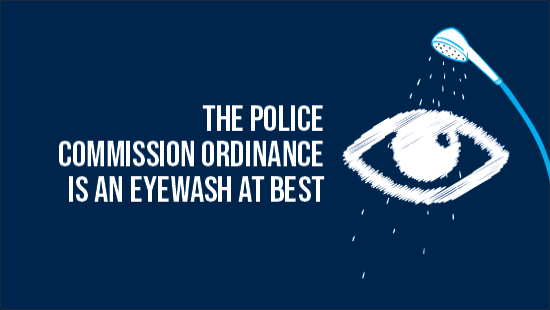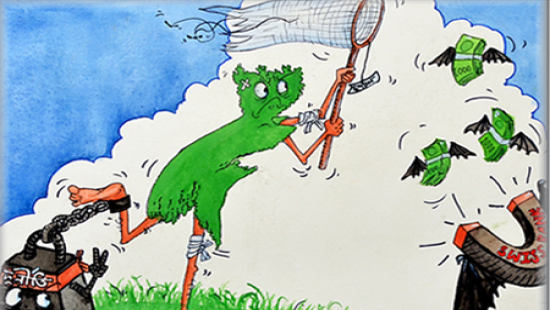Published: 31 January 2024
The Corruption Perceptions Index (CPI) 2023, released by the Transparency International on January 30, 2024, shows further worsening of Bangladesh's performance. The country has scored 24 on a scale of 100, the 10th lowest global score. This is also Bangladesh's lowest score in 12 years since 2012, when the 0-100 scale of the index replaced the earlier 0-10 scale. The score is one point less than that of 2022, when it was the 12th lowest, and two points less than the trend value for 2012-2023. In terms of ranking, Bangladesh is ranked at 149th compared to 147th from top, and 10th compared to 12th from bottom. Lagging way behind the global average score of 43, Bangladesh is grouped among countries where corruption is considered to be a "very serious problem."
Analysis of CPI 2023 data shows that although a "hybrid regime," as per the Democracy Index of the Economist Intelligence Unit, Bangladesh's score is not only 12 points lower than the average of 36 for this category, but also five points less than 29 for the class of authoritarian regimes. Our performance is also seven points worse than countries having "no electoral democracy," according to Freedom House research. As per regional analysis, Bangladesh's 2023 score is 21 points less than the Asia-Pacific region (45) and nine points lower than the average for the globally lowest performing Sub-Saharan Africa (33).
Bangladesh remains the second lowest in South Asia, above only Afghanistan. Bhutan continues to be the best performer in the region, scoring 68. In the rest of the region, scores remained well below the global average: India and the Maldives scored 39, Nepal 35, Sri Lanka 34, Pakistan 29, and Afghanistan 20. Trend analysis for 2012-2023 shows that Bangladesh and Sri Lanka are the only two countries in the region that have failed to improve, and lost two and six points, respectively. Afghanistan and Nepal have gained the highest during the period—16 and 8 points, respectively. Bhutan has gained five, India three, Maldives four (2019-2022), and Pakistan two. Bangladesh has the fourth lowest score among 31 Asia-Pacific countries, better than only Cambodia (22), Afghanistan and Myanmar (20), and North Korea (17).
As always, no country has scored 100 percent. Denmark, with a score of 90, has topped the list, followed by Finland (87), New Zealand (85), Norway (84), Singapore (83), Sweden and Switzerland (82), Netherlands (79), Germany and Luxembourg (78), Ireland (77), Canada and Estonia (76), Australia and Hong Kong (75), and Belgium, Japan and Uruguay (73). Other countries that have scored higher than 70 percent are Iceland (72), and Austria, France, Seychelles, and the United Kingdom (71). Among international heavyweights that have performed incommensurate with their global influence are the United States (69), China (42) and Russia (26).
Most countries have made little to no progress in 12 years since 2012. As many as 122 countries (67.77 percent) have scored below 50, which indicates "serious corruption problem." Meanwhile, 105 countries (58.33 percent) scored below the global average of 43, which means over 80 percent of the world's population live with a "very serious corruption problem." Compared to 2022, the score of 63 countries have declined, 62 retained the same score and 55 countries improved.
Countries that have scored lower compared to 2022 include some of the top scorers like New Zealand, Iceland and UK (-2), and Sweden, Netherlands, Germany and France (-1). Based on a 12-year trend analysis (2012-2023), 88 declined, 81 improved and 5 remained unchanged. Losers among prominent high-scorers are Australia (-10), Canada (-8), Iceland (-10), Sweden (-6), Netherlands (-5), New Zealand (-5), Singapore (-5), Switzerland (-4), US (-4) and UK (-3).
Somalia, with a score of 11, continues to be at the very bottom of the global list, followed by South Sudan, Syria and Venezuela (13). Other low scorers below Bangladesh include Yemen (16), Equatorial Guinea, Haiti, North Korea and Nicaragua (17), Libya and Turkmenistan (18), Myanmar, Sudan and Tajikistan (20), Eritrea (21), Cambodia (22) and Azerbaijan (23). Same scorers as Bangladesh are Central African Republic, Iran, Lebanon and Zimbabwe.
The key message of the latest CPI is that corruption and injustice are interrelated. Corruption breeds injustice, while injustice facilitates further corruption, creating a vicious circle. Countries that have democratic regimes, where civil and political rights are protected and respected, perform better in corruption control.
With declining democracy worldwide, justice systems are getting weakened, causing deepened and widened corruption through reduced accountability. As justice is undermined, the corrupt get impunity. When bribery and politico-governmental influence infiltrate the justice sector, judicial processes are manipulated and the perpetrators are protected, while the victims suffer more. All these benefit the privileged sections of wrongdoers at the expense of public interest.
Exploring why Bangladesh has performed so miserably, it may be noted that the data period for CPI 2023 (November 2020-September 2023) witnessed no strategic initiatives to walk the talk to transform the pledge of zero tolerance against corruption into practice. Widespread public sector corruption intensified, especially in public contracting and project implementation. No effective action has been taken against money laundering, in which Bangladesh has become a global leader, while calls for accountability were met by lack or freeze of action.
State institutions mandated to control corruption, including the Anti-Corruption Commission (ACC), have been under political and bureaucratic influence. Bribery and misappropriation of public funds continued unabated. Nepotism and partisan influence in public sector appointments and business including contracting have been normalised, and there is also backlash for initiatives against corruption. Protection and even rewarding of the allegedly corrupt have inspired further violation of laws. Overall, political and government positions or connections are treated as a licence for abuse of power.
Policy capture using lobby power, especially in the banking sector which is ravaged by loan default and related swindling, financial fraud and illicit financial transfers, have flourished. Governance has become dependent on surveillance for targeted control and intimidation of media and civil society, driven by intolerance of criticism, disclosure and reporting on corruption.
If Bangladesh is to succeed in corruption control, impunity must be challenged, and the powerful in particular must be brought to justice—irrespective of status or identity. As naive as it may sound in a monopolistically controlled political and governance context, the government must demonstrate that it is truthful to the 2024 election manifesto of the ruling party. The question is whether there will be the courage to deliver some of the specific pledges of the manifesto, like confiscation of illegally earned income and wealth and accountability for trade-based and other forms of money laundering, for which cleansing one's own house is indispensable.
The biggest challenge is to depoliticise key institutions and processes to ensure professional integrity and effectiveness, especially the ACC, bureaucracy, law enforcement and the judicial services. The juggernaut of policy capture, conflict of interest and partisan political control will remain the main predicament especially in sectors like public procurement, banking, trade, power, health, education, land and infrastructure. No change is possible without the freedom of media, civil society and people at large for dissension, disclosure, reporting and commenting on corruption.
Dr Iftekharuzzaman is executive director at Transparency International Bangladesh (TIB).
The Daily Star
January 31, 2024
Link







